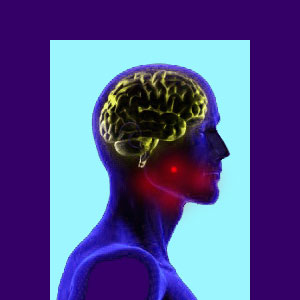
Clenching the jaw is a classic manifestation of internal psychological turmoil and is often seen in patients who suffer from tension myositis syndrome, as well as other varieties of mindbody disorders. Jaw clenching is uncomfortable and might even become a pathological habit that can cause temporomandibular joint disorder, bruxism, tension headaches, as well as myofascial pain.
Jaw clenching as a persistent unconscious expression is on the rise and we observe it more often than ever before in patients who we meet in clinical practice. The condition provides certain physical signs that are easy to recognize when documenting a patient’s behavior and appearance, including tight lips, stiff jaw, restricted opening of the mouth when speaking and general palpable tension in the facial region.
This fascinating discussion focuses on the expression of clenching the jaw as part of a larger mindbody pain condition. We will share our extensive experience to help readers and professional caregivers to recognize the signs of jaw clenching and better understand its psychoemotional origins in the subconscious mind.
Clenching the Jaw Expressions
Jaw clenching is one of the many possible internal tension equivalents, such as buttocks clenching, fist clenching and raising the shoulders high. In this particular expression, the person holds a chronic tightness in the jaw which can often be visually observed externally, particularly when they speak.
Jaw clenching may occur at particular times, such as when in social settings, when dealing with stress, when sleeping or when involved in introspective thought. However, some people demonstrate persistent clenching of the jaw virtually around the clock. Along with a clenched jawline, the person might also express tight lips, persistent licking of the lips, grinding the teeth, clenching the teeth together without grinding or pressing the tongue against the teeth or the roof of the mouth without conscious intention. In fact, all of these manifestations of internal psychoemotional issues tend to occur unconsciously and the patient is often completely unaware that they are performing these acts, even when symptoms develop.
Clenching the jaw is a known contributor to temporomandibular pain, myofascial pain, tension headaches, tooth aches, lip dryness, mouth dryness, sinus pressure, bruxism and even tooth loss.
Jaw Clenching Causation
Jaw clenching as an unconscious habit is most often a classic sign of psychoemotional turmoil that resides beneath the conscious surface of the mind. Clenching can exist as a substitute for pain, a precursor to pain or an addition to pain, with the last example being the most common in the population we observe.
Internalized emotional sensitivities might be repressed or suppressed, but always seek to gain conscious recognition. It is this process that creates mindbody symptomology and its various physical expressions, such as jaw clenching. When patients are aware of the underling motivation, they can use the symptom as a barometer of psychic activity, in order to thoroughly and introspectively find and deal with issues which are causing them considerable psychological consternation. When patients are not aware of the link to the mindbody process, jaw clenching becomes yet another symptomatic activity that causes them great pain and distress, without helping them to find its root origin and resolve it, effectively ending their suffering.
You Can Stop Clenching the Jaw
Becoming aware of the habit of clenching the jaw is literally the most important aspect of successful treatment. Once patients understand that they are clenching without even knowing it, they will begin to become cognizant of performing the act and become capable of evaluating the psychoemotional circumstances that incite it. Until that time, patients might be completely unaware of clenching or may realize it occurs occasionally, but have no idea why or how to stop it.
A comprehensive program of knowledge therapy will put most patients on course to discover the inner workings driving this symptom imperative. We specifically talk about jaw clenching in our peer-acclaimed self help program and can assist patients in ending this habit forever, using our own extensive personal and professional expertise on the subject. If you are looking for help with chronic jaw clenching, you must go about it correctly. Speaking to your dentist or doctor will likely only produce ridiculous results such as dependence on mouth orthotics or the recommendation to chew gum… Instead, understand why you clench and use that knowledge to literally end the habit for good. We can help!





